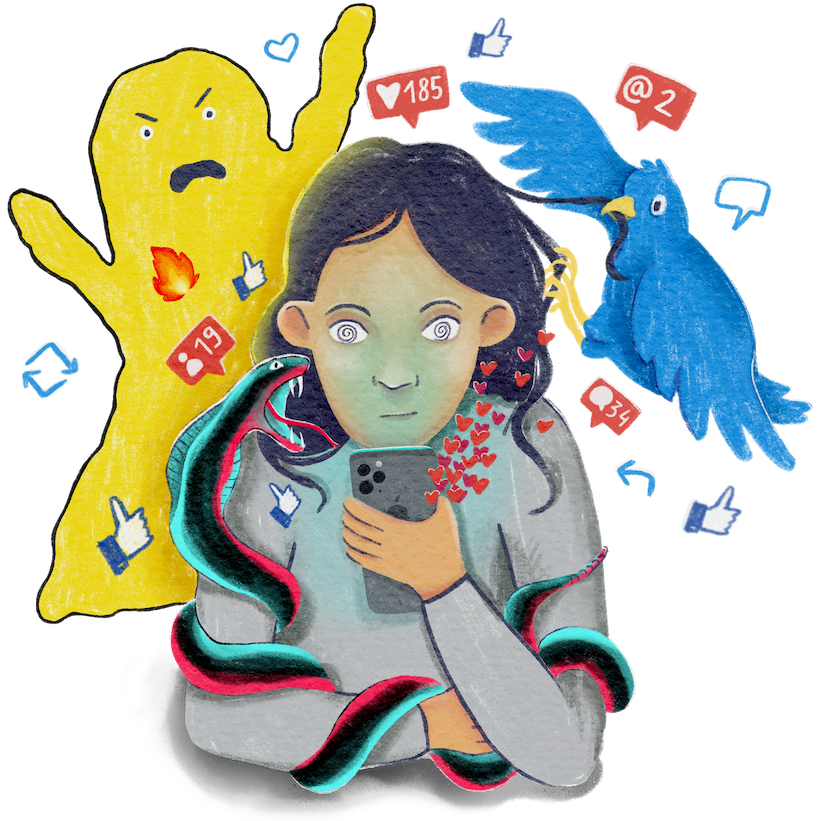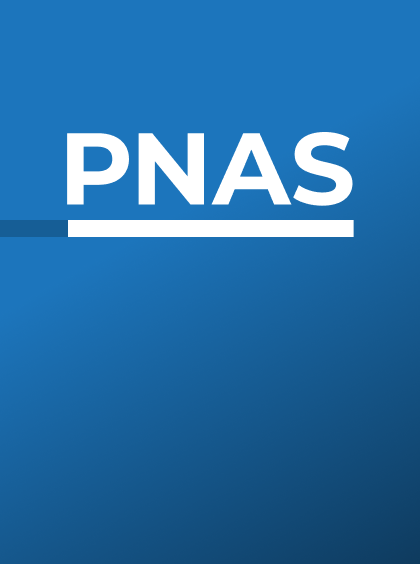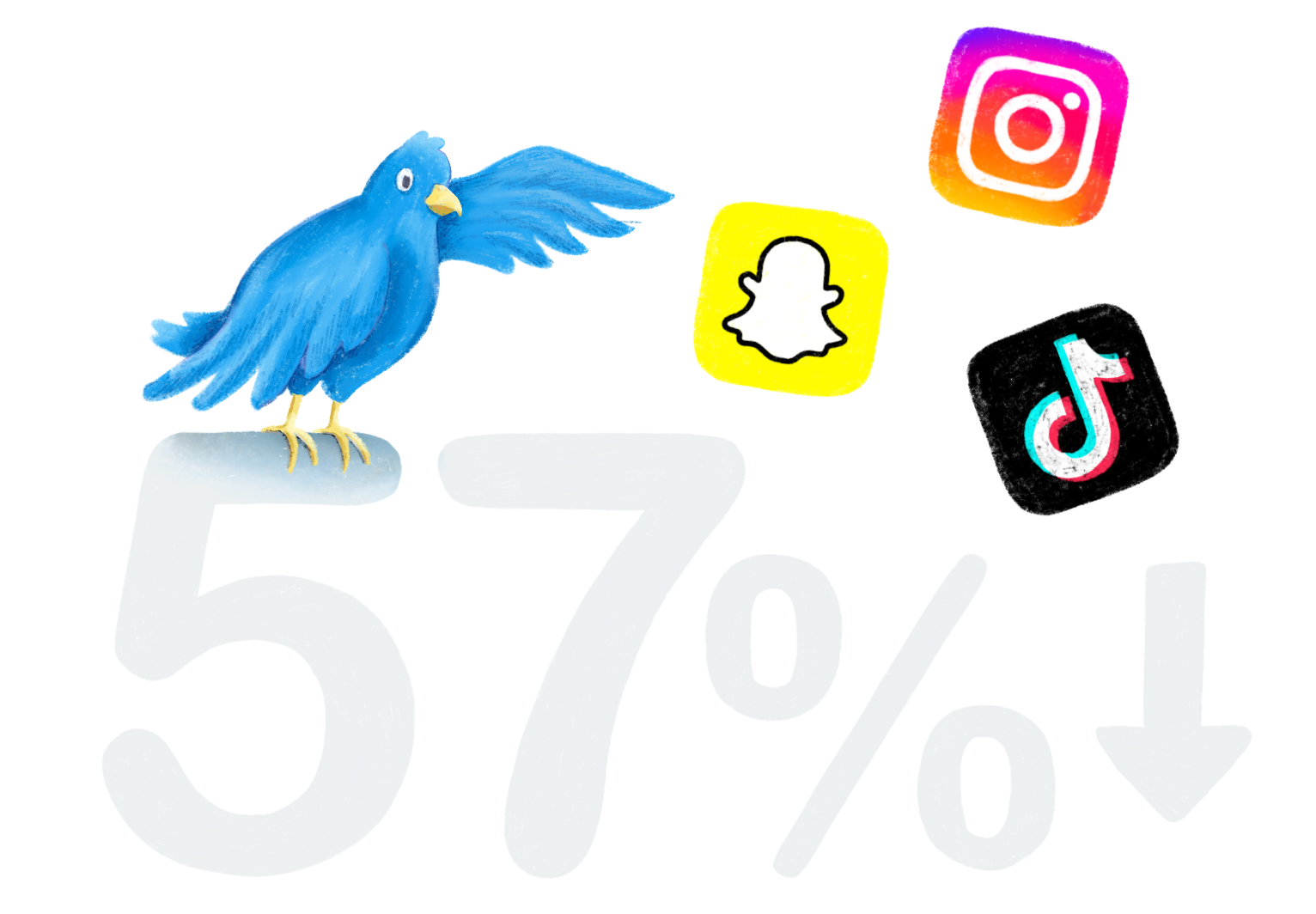
Scientific study with Max Planck Institute
Social media usage cut in half through “one sec” intervention
Our study with the University of Heidelberg and Max Planck Institute detected a reduction of social media usage by 57% thanks to one sec.
We conducted the study through one sec itself, participating users would contribute anonymized usage data over a timespan of the first 6 weeks after installing the app. A survey was filled out before and after. In this blog post, I am presenting a summary of our results. Our study has been peer-reviewed and published in PNAS.
